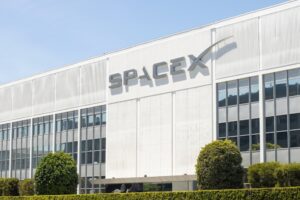Elon Musk’s sweeping cuts to US government agencies have sparked concerns that private companies—including his own—could reap billions in new contracts as public services are dismantled.
Musk, who has taken on a powerful role in the Trump administration, has vowed to oversee the mass downsizing of federal agencies, arguing that many should be “deleted entirely.” But while the cuts are being framed as a drive for efficiency, they could end up funnelling lucrative contracts to private firms—including Musk’s SpaceX and Starlink, which already hold multi-billion-dollar deals with the US government.
The restructuring comes as Musk pushes for the adoption of artificial intelligence in government operations and a complete overhaul of US weapons programmes—an area where private defence contractors are eager to step in.
Private sector sees opportunity
Musk’s cost-cutting agenda has already been praised by Silicon Valley and defence firms, which see an opportunity to expand their influence as government functions are outsourced.
Palantir, the data analytics company with hundreds of millions in US military contracts, has been particularly vocal about the changes. On a recent earnings call, Palantir CTO Shyam Sankar lauded Doge for bringing “meritocracy and transparency” to government operations, adding that it would eliminate wasteful software projects.
“This is a revolution—some people are gonna get their heads cut off,” said Palantir CEO Alex Karp. “We’re expecting to see unexpected things and to win.”
Cryptocurrency exchange Coinbase has also expressed interest in integrating blockchain into government spending, while defence giants like Lockheed Martin and Northrop Grumman have welcomed Doge’s efforts to speed up military procurement.
Meanwhile, General Atomics Aeronautical Systems, which manufactures Predator drones, has written directly to Musk, urging him to streamline the Pentagon’s defence contracts.
Beyond private sector enthusiasm, Musk’s own companies stand to gain significantly from the hollowing out of government operations.
His space company, SpaceX, has already embedded itself within NASA’s operations, securing more than $15 billion in contracts since its first federal deal in 2006. SpaceX now controls over 60% of the world’s active satellites, and its Starlink satellite network has become a crucial communications tool for the US military and foreign conflicts.
Musk’s growing influence in the Pentagon and the Trump administration suggests that his businesses could receive an even greater share of government contracts as agencies are downsized.
Musk’s increasing control over federal agencies has drawn sharp criticism from government watchdogs, who warn that it removes checks on corruption and self-dealing.
Trump has already weakened federal oversight, firing 18 inspectors general—officials responsible for investigating ethical breaches in government contracts. Meanwhile, Musk has been given free rein over procurement decisions, despite his personal financial interests.
“You don’t need to be an ethics expert to see the massive problem here,” said Donald Sherman, executive director of Citizens for Responsibility and Ethics in Washington (Crew). “A billionaire who funds the president’s campaign and has government contracts of his own is now in charge of deciding who gets paid.”
Crew has joined other advocacy groups in filing lawsuits against Doge, arguing that it violates federal transparency laws. However, a judge has so far allowed Trump and Musk’s restructuring to continue.
Despite the ethical concerns, Trump has repeatedly dismissed allegations that Musk is abusing his position. The White House insists that if Musk encounters a conflict of interest, he will “excuse himself” from those decisions—a statement that has done little to reassure critics.
Musk’s official government role as a “special government employee” also allows him to sidestep financial disclosure requirements, meaning the full extent of his financial interests in government contracts remains hidden.
With oversight mechanisms dismantled and private companies—including Musk’s—gaining unprecedented access to federal decision-making, critics warn that the reshaping of the US government could have long-lasting consequences, shifting power away from public institutions and into the hands of a few corporate giants.
Read more:
Elon Musk’s government cuts could hand billions to private companies
